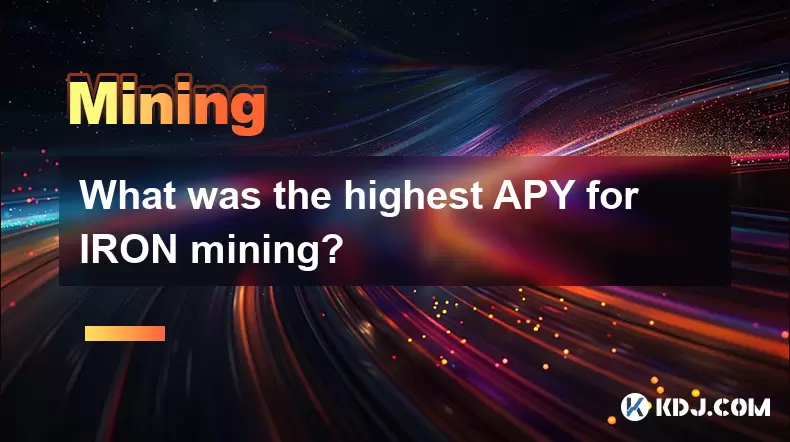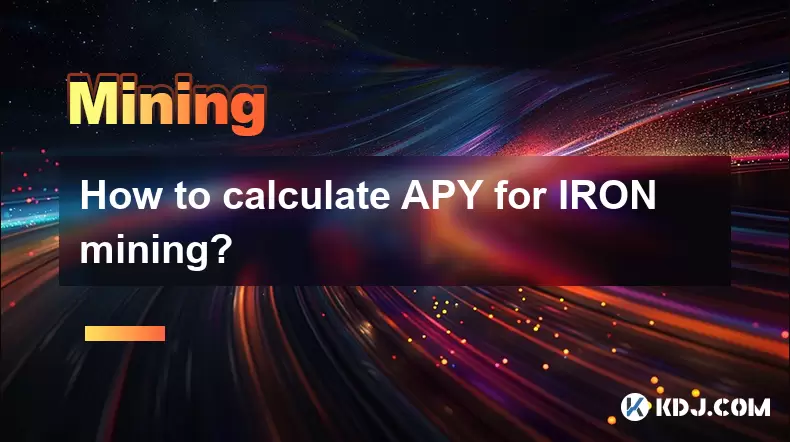-
 Bitcoin
Bitcoin $114400
1.32% -
 Ethereum
Ethereum $3499
2.20% -
 XRP
XRP $2.922
4.26% -
 Tether USDt
Tether USDt $0.0000
0.03% -
 BNB
BNB $752.6
1.53% -
 Solana
Solana $161.8
1.64% -
 USDC
USDC $0.9999
0.01% -
 TRON
TRON $0.3267
1.32% -
 Dogecoin
Dogecoin $0.1991
3.02% -
 Cardano
Cardano $0.7251
3.29% -
 Hyperliquid
Hyperliquid $38.32
3.36% -
 Stellar
Stellar $0.3972
7.58% -
 Sui
Sui $3.437
2.74% -
 Chainlink
Chainlink $16.29
3.65% -
 Bitcoin Cash
Bitcoin Cash $545.3
3.70% -
 Hedera
Hedera $0.2482
7.49% -
 Ethena USDe
Ethena USDe $1.001
0.03% -
 Avalanche
Avalanche $21.40
2.02% -
 Toncoin
Toncoin $3.579
1.56% -
 Litecoin
Litecoin $109.3
2.20% -
 UNUS SED LEO
UNUS SED LEO $8.951
-0.18% -
 Shiba Inu
Shiba Inu $0.00001220
2.75% -
 Polkadot
Polkadot $3.613
2.99% -
 Uniswap
Uniswap $9.173
3.78% -
 Monero
Monero $302.6
2.62% -
 Dai
Dai $0.0000
0.00% -
 Bitget Token
Bitget Token $4.320
1.52% -
 Pepe
Pepe $0.00001048
3.40% -
 Cronos
Cronos $0.1314
4.33% -
 Aave
Aave $259.4
3.54%
How long will it take to get back your investment in Bitcoin mining? Calculation of income and the impact of market fluctuations
Bitcoin mining ROI depends on initial costs, equipment efficiency, electricity prices, and Bitcoin's value, which can fluctuate and affect recouping investments.
Jun 03, 2025 at 02:01 pm

Bitcoin mining has become an increasingly popular way to earn cryptocurrency, but many people wonder how long it will take to recoup their initial investment. This article will delve into the factors that affect the return on investment (ROI) in Bitcoin mining, including the calculation of income and the impact of market fluctuations.
Understanding Bitcoin Mining Costs
The initial investment in Bitcoin mining can vary significantly depending on the scale of the operation. For small-scale miners, the cost may include purchasing a single ASIC miner, which can range from $500 to $2,000. Larger operations might involve setting up a mining farm with multiple ASICs, which can cost tens of thousands of dollars. Additionally, miners must consider the cost of electricity, which can vary widely depending on location. For example, in some regions, electricity costs can be as low as $0.05 per kWh, while in others, it can exceed $0.30 per kWh.
Calculating Mining Income
To calculate the income from Bitcoin mining, miners need to consider several factors. The hash rate of the mining equipment is crucial, as it determines the number of calculations the miner can perform per second. Higher hash rates typically result in more Bitcoin mined. Additionally, the difficulty of the Bitcoin network affects mining income. As more miners join the network, the difficulty increases, making it harder to mine new blocks. Finally, the price of Bitcoin at the time of mining directly impacts the value of the mined coins.
Miners can use online calculators to estimate their potential income. These calculators take into account the hash rate of the equipment, the cost of electricity, and the current difficulty level of the Bitcoin network. For example, if a miner uses an ASIC with a hash rate of 100 TH/s and electricity costs $0.10 per kWh, the calculator might estimate that the miner can earn approximately 0.0005 BTC per day, assuming the current difficulty level and Bitcoin price.
Impact of Market Fluctuations
Market fluctuations can significantly impact the ROI of Bitcoin mining. The price of Bitcoin is notoriously volatile, and changes in its value can affect the profitability of mining operations. For instance, if the price of Bitcoin increases, miners can earn more from the same amount of mining, potentially speeding up the ROI. Conversely, if the price drops, miners may find it more challenging to recoup their initial investment.
Additionally, changes in the difficulty level of the Bitcoin network can affect mining income. As more miners join the network, the difficulty increases, making it harder to mine new blocks and reducing the income per hash. Conversely, if miners leave the network, the difficulty decreases, potentially increasing the income per hash.
Estimating the Time to Recoup Investment
Estimating the time it takes to recoup the initial investment in Bitcoin mining involves considering all the factors mentioned above. For example, if a miner invests $1,000 in an ASIC miner and pays $0.10 per kWh for electricity, they might calculate their daily income as 0.0005 BTC. If the current price of Bitcoin is $30,000, the daily income in USD would be $15. To recoup the initial investment, the miner would need approximately 67 days, assuming the price of Bitcoin and the difficulty level remain constant.
However, real-world scenarios are rarely this straightforward. Market fluctuations and changes in network difficulty can significantly alter the ROI timeline. For instance, if the price of Bitcoin drops to $20,000, the daily income in USD would be $10, extending the time to recoup the investment to 100 days. Conversely, if the price rises to $40,000, the daily income would be $20, shortening the ROI timeline to 50 days.
Factors Affecting ROI
Several other factors can affect the ROI of Bitcoin mining. The efficiency of the mining equipment plays a crucial role. More efficient miners consume less electricity, reducing operating costs and potentially speeding up the ROI. Additionally, the choice of mining pool can impact income. Some pools offer higher payouts but charge higher fees, while others may have lower fees but lower payouts.
Maintenance and operational costs also need to be considered. Miners must account for the cost of cooling equipment, potential repairs, and the eventual replacement of mining hardware. These costs can add up over time and affect the overall ROI.
Case Study: Small-Scale vs. Large-Scale Mining
To illustrate the differences in ROI between small-scale and large-scale mining, let's consider two hypothetical scenarios. In the first scenario, a small-scale miner invests $1,500 in a single ASIC miner with a hash rate of 100 TH/s and pays $0.10 per kWh for electricity. Using the same calculations as before, the miner's daily income would be $15 at a Bitcoin price of $30,000, with an estimated ROI timeline of 100 days.
In the second scenario, a large-scale miner invests $100,000 in a mining farm with 50 ASIC miners, each with a hash rate of 100 TH/s. The total hash rate is 5,000 TH/s, and the electricity cost is $0.08 per kWh due to bulk discounts. The daily income at a Bitcoin price of $30,000 would be $750, with an estimated ROI timeline of 133 days. While the ROI timeline is longer, the large-scale operation has the potential to generate significantly more income over time.
Frequently Asked Questions
Q: Can I mine Bitcoin profitably with a regular computer?
A: No, mining Bitcoin with a regular computer is not profitable due to the high hash rate required and the low efficiency of CPUs and GPUs compared to ASIC miners. The electricity costs would likely exceed any potential income from mining.
Q: How does the choice of mining pool affect my ROI?
A: The choice of mining pool can impact your ROI through fees and payout structures. Some pools charge higher fees but offer more consistent payouts, while others may have lower fees but less frequent payouts. It's essential to research and compare different pools to find the best fit for your mining operation.
Q: What happens if the price of Bitcoin drops significantly after I start mining?
A: If the price of Bitcoin drops significantly, it can extend the time required to recoup your investment. In some cases, mining may become unprofitable if the price drops below the cost of electricity. It's crucial to monitor market conditions and adjust your mining strategy accordingly.
Q: Are there any tax implications for income earned from Bitcoin mining?
A: Yes, income earned from Bitcoin mining is typically subject to taxation. The tax treatment can vary by country, but generally, mined Bitcoin is considered taxable income at its fair market value at the time of receipt. It's advisable to consult with a tax professional to understand your specific tax obligations.
Disclaimer:info@kdj.com
The information provided is not trading advice. kdj.com does not assume any responsibility for any investments made based on the information provided in this article. Cryptocurrencies are highly volatile and it is highly recommended that you invest with caution after thorough research!
If you believe that the content used on this website infringes your copyright, please contact us immediately (info@kdj.com) and we will delete it promptly.
- BCUT: Support Holds, Accumulation Hints at Potential Reversal
- 2025-08-04 10:50:12
- Bitcoin's Bullish Expansion: Decoding Bollinger Bands and Whale Bets
- 2025-08-04 10:55:12
- XRP, Solana, and Whales: Decoding the Crypto Tides
- 2025-08-04 11:10:11
- BlockDAG's Grand Finale: Auction Fever and the Dawn of a New Era
- 2025-08-04 10:30:12
- Kaia Files: Will South Korea Embrace a KRW-Pegged Stablecoin?
- 2025-08-04 10:30:12
- Kaspa, HBAR, and Cold Wallet: A New York Minute on Crypto's Latest Moves
- 2025-08-04 09:11:54
Related knowledge

What was the highest APY for IRON mining?
Jul 23,2025 at 05:14am
Understanding IRON Token and Its Mining MechanismThe IRON token is a stablecoin that operates within the Iron Finance ecosystem, primarily on blockcha...

What is impermanent loss in IRON pools?
Jul 23,2025 at 09:00am
Understanding Impermanent Loss in the Context of IRON PoolsImpermanent loss is a phenomenon that affects liquidity providers in decentralized finance ...

How to claim rewards from IRON mining?
Jul 23,2025 at 02:21pm
Understanding IRON Mining and Reward MechanismsIRON Finance operated as a decentralized finance (DeFi) protocol on the Polygon and Binance Smart Chain...

How to claim rewards from IRON mining?
Jul 29,2025 at 05:07am
Understanding IRON Mining and Reward MechanismIRON is a dual-token system designed to stabilize the value of a synthetic asset through a combination o...

IRON mining tutorial for beginners
Jul 27,2025 at 12:01am
What Is IRON and How Does It Work in the Cryptocurrency Ecosystem?IRON is a cryptocurrency token that operates on the Binance Smart Chain (BSC) and is...

How to calculate APY for IRON mining?
Jul 28,2025 at 09:49am
Understanding APY in the Context of IRON Token MiningWhen engaging in IRON token mining within decentralized finance (DeFi) platforms, Annual Percenta...

What was the highest APY for IRON mining?
Jul 23,2025 at 05:14am
Understanding IRON Token and Its Mining MechanismThe IRON token is a stablecoin that operates within the Iron Finance ecosystem, primarily on blockcha...

What is impermanent loss in IRON pools?
Jul 23,2025 at 09:00am
Understanding Impermanent Loss in the Context of IRON PoolsImpermanent loss is a phenomenon that affects liquidity providers in decentralized finance ...

How to claim rewards from IRON mining?
Jul 23,2025 at 02:21pm
Understanding IRON Mining and Reward MechanismsIRON Finance operated as a decentralized finance (DeFi) protocol on the Polygon and Binance Smart Chain...

How to claim rewards from IRON mining?
Jul 29,2025 at 05:07am
Understanding IRON Mining and Reward MechanismIRON is a dual-token system designed to stabilize the value of a synthetic asset through a combination o...

IRON mining tutorial for beginners
Jul 27,2025 at 12:01am
What Is IRON and How Does It Work in the Cryptocurrency Ecosystem?IRON is a cryptocurrency token that operates on the Binance Smart Chain (BSC) and is...

How to calculate APY for IRON mining?
Jul 28,2025 at 09:49am
Understanding APY in the Context of IRON Token MiningWhen engaging in IRON token mining within decentralized finance (DeFi) platforms, Annual Percenta...
See all articles

























































































